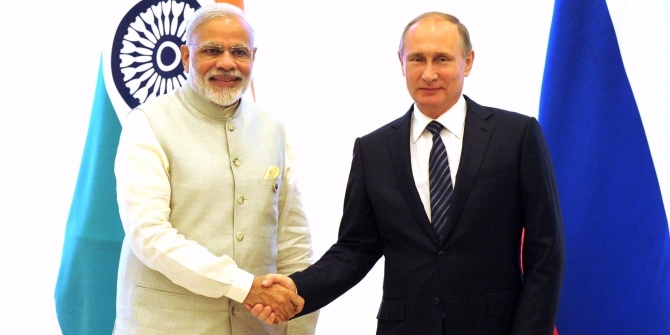This year the South Asia Centre once again hosted a large number of high profile speakers, both in London and at the first LSE India Summit in Goa offering a large number of interview opportunities. Students also took the initiative to reach out to high profile academics to comment on current affairs topic. Here we round up the five most popular interviews posted on South Asia @ LSE in 2016.
“If you look at Karachi and who plans it, the decisions are made by those who do not understand the problems of the ordinary people” – Arif Hasan
With its fast-growing population Karachi is typical of many South Asian megacities that struggle to meet the needs of low income citizens. The eminent Pakistani architect Arif Hasan has been involved in urban development for over 40 years. Here he talks to journalist Mukti Jain Campion about his home city’s post-Partition evolution.
“We need a new system where individual rights are respected and the state plays a responsible role in providing security to those who need it” – Baburam Bhattarai
On 14 November Dr Baburam Bhattarai, former Prime Minister of Nepal and Chair of the new Naya Shakti (New Force) party, spoke at LSE on ‘New Politics and Policies for Nepal’. LSE MSc students Pragya Kc and Manoj Paudel interviewed Dr Bhattarai about the 2015 earthquake, development, Nepal’s relationship with India, and youth engagement in politics.
“I am not aware that this has been thought through” – Jean Drèze speaks to Pragya Tiwari about the new Aadhaar Act
In March, the Aadhaar Bill was passed, empowering the government to use the Unique Identity scheme for delivering subsidies and services and potentially enabling it to require that citizens enroll. However, the bill has come under significant criticism. Executive MPA student and journalist Pragya Tiwari discusses the context of the latest dispute, and speaks to development economist Jean Drèze about the potential weaknesses of the government’s campaign to link benefits to Aadhaar.
“If women’s productive activities were better understood, policy could be designed to support rather than invisiblise their contributions” – Naila Kabeer
In June, the South Asia Centre held an event entitled “Tales of the Unexpected: gender equality and social progress in Bangladesh”. South Aia @ LSE Editor Sonali Campion spoke to gender and development Professor Naila Kabeer in greater detail about her research on the rapidly changing status of women in Bangladesh, the challenge of measuring women’s economic activities and how to design inclusive policy.
Economic History in South Asia: In Conversation with Professor Tirthankar Roy
Economic history is a frequently overlooked branch of both history and economics. LSE MSc student Amal Shahid spoke to LSE’s Professor Tirthankar Roy about the value of studying the discipline in relation to South Asia, why it has been sidelined and what the UK and India can learn from each other about teaching it.
You can catch up with all this year’s interviews via the archive here. Podcasts recorded at South Asia Centre events can also be found here.
Cover image credit: Evan Forester CC BY 2.0
Note: This article gives the views of the author, and not the position of the South Asia @ LSE blog, nor of the London School of Economics. Please read our comments policy before posting.







